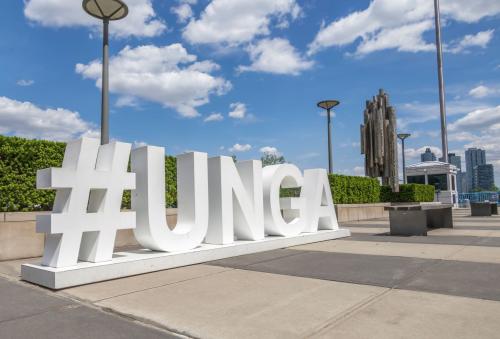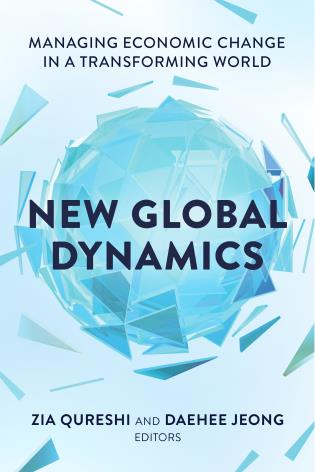Why are U.S. troops providing about 85 percent of all international forces in Iraq?
One reason: The world sees this as the Bush administration’s war and doesn’t want to support the perceived unilateralism that led to it. But the broader answer is that other countries generally can’t do much to help. Their armed forces remain either under-financed, under-equipped and under-trained, or they still focus on the wrong set of missions for today’s world.
It’s time to fix the problem.
With the U.S. Army strained to the breaking point, progress in Afghanistan graded only a D—in the words of Afghan President Hamid Karzai—a near-genocide in Sudan, fragile peace accords in need of greater support in places such as Haiti and Congo and conflict rife in other parts of Africa, the international community must develop a crash program to create more expeditionary military capacity.
Indeed, some of these events illustrate the feebleness of the international community’s ability to solve serious security problems. Afghanistan is as large and populous as Iraq, yet our NATO allies are struggling to add just a couple of thousand troops to a very small peacekeeping presence of about 6,000 currently in the country.
The Democratic Republic of the Congo, where at least 3 million have died of war-related causes in the last decade, is more than twice the size of Iraq but must get by with only 10,000 peacekeepers (many poorly prepared for the job) because that is the extent of what the world can supply.
A similar situation prevails in the Ivory Coast and Sierra Leone, where shaky cease-fires are policed by far too few troops.
Of about 250,000 peacekeepers deployed in various countries, about 150,000 are American (most obviously in Iraq). Another 30,000 or more are British and French—not a proportionate contribution by comparison with the United States, but still respectable. After that, things fall off fast.
Three broad policy thrusts are needed to correct this situation. All can make meaningful progress within two years if taken seriously by the countries involved, including the United States.
First, NATO needs to get on the ball. For 15 years since the Cold War ended, NATO has talked about reconfiguring its militaries for challenges beyond member states. But with the noted exceptions of Britain and France, and significant help in Iraq from other countries such as Italy and Poland, few members have taken systematic steps to reshape their armed forces appropriately.
Occasionally, as in Germany, more money is needed. And in the new NATO countries, where budgets are tight, occasional U.S. money may be needed in modest doses to spur further reform and restructuring.
But the problem generally is resource allocation.
Second, Europe collectively has 3 million people under arms, twice the U.S. number, but can deploy only about a quarter as many forces abroad. To resolve this, forces should be cut by one-third or one-half, and the remainder must be properly structured and equipped to operate at great distances in austere environments.
That means buying mundane logistics equipment—fast roll-on/roll-off ships for deployment, trucks and mobile repair facilities and other logistics assets for use in a theater of operation. An ambitious effort to accomplish this would cost about $50 billion and add a couple of hundred thousand deployable troops to European totals, but not everything needs to be done as part of a crash program. Money surely can be found out of total defense budgets exceeding $150 billion a year.
In Africa, where the majority of conflicts still occur, a different approach is needed.
The Group of Eight meeting of industrialized nations last month declared usefully that the world’s wealthier countries would push an initiative to help train and equip up to 75,000 soldiers from the region so they can do more about security in their own areas.
But it is time to back up these nice words with money, and as part of a supplemental budget request now, tied to the war on terror, not when we get around to it. Since al-Qaida still uses countries such as Somalia and Liberia for havens and for obtaining money (through means such as the illegal diamond trade), this is not just a humanitarian imperative. About $100 million a year in U.S. funds is needed—not a huge amount, given the stakes involved.
Third, we need to ask Japan, South Korea and China to keep broadening their roles in global security. The first two, impressively and controversially, are now in Iraq. Good. But rather than focus only on Iraq, we also need to ask them to prepare their forces for missions in other places. The good news is that most other missions are less contentious and somewhat less dangerous, so we should be able to build on progress in Iraq.
The above would be a worthy agenda for whoever wins the presidential election in November. It’s not an ideological issue because it does not focus on whether U.S. troops should do more nation-building (they are already doing just about as much as they can). It is about trying to use our influence, and in some cases modest amounts of money and military expertise, with our friends and allies so they can do more of their share in these urgently needed missions.



Commentary
Op-edSharing the Burden
July 19, 2004